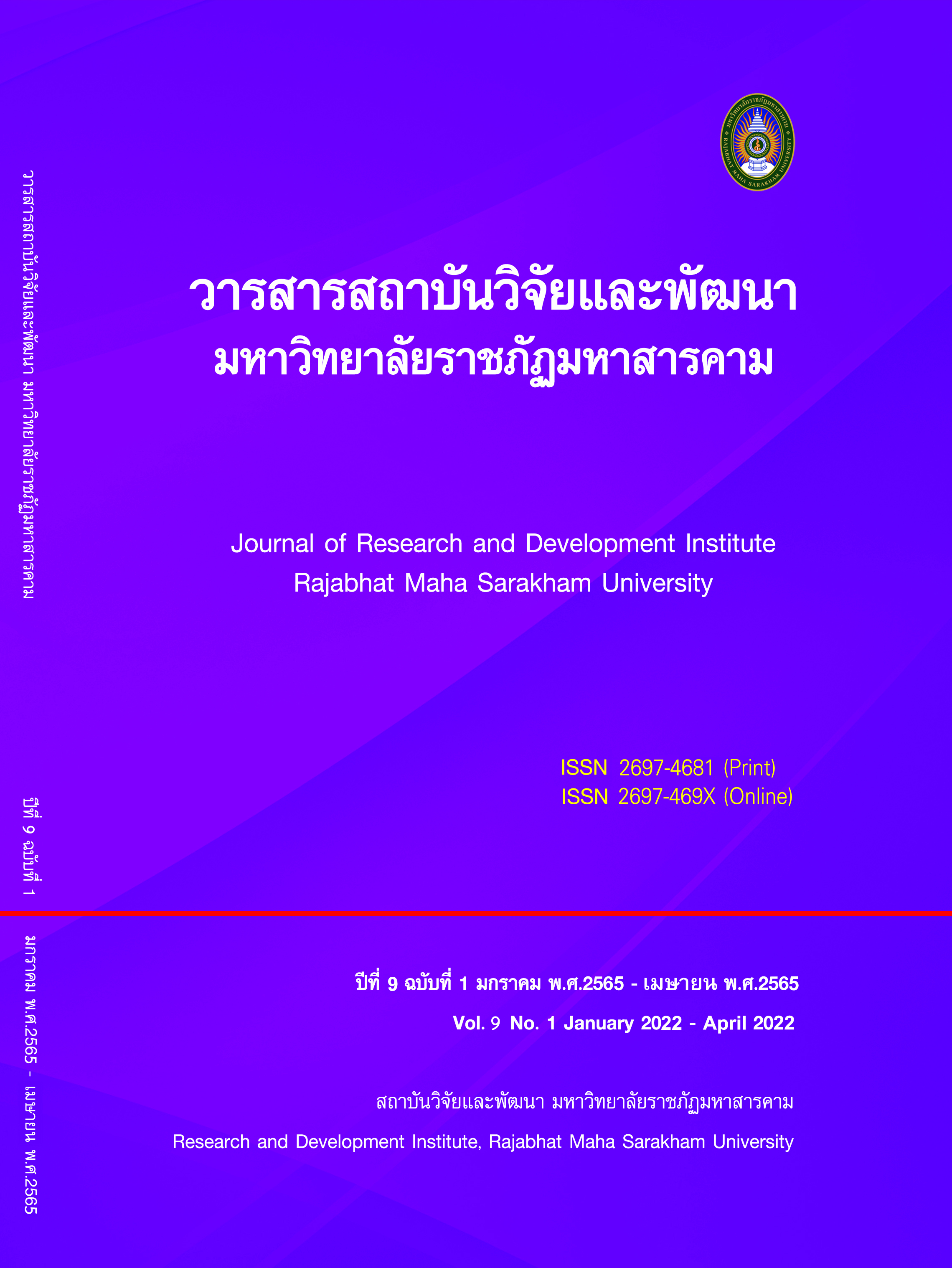Good practice of Community Model for Everyday-Life based on the Sufficiency Economy Philosophy in Maha Sarakham
Keywords:
Good practice, Community Model, Sufficiency Economy PhilosophyAbstract
The objectives of this was to find good practices within the studied communities on behavior related to the sufficiency economy philosophy in a sustainable matter. The study was conducted in 3 villages in Maha Sarakham province: Ban Nong Phueak (Wapi Pathum District); Ban Lao Noi (Muang District); and Ban Huai Sai (Borabue District). The respondents were 20 community leaders. The tool used for data collection was In-depth interview and focused-group discussion. Qualitative data analysis by content analysis.
The findings showed that the good practice within the included villages showed that in order to carry out sufficiency economy philosophy in a sustainable way, these would be needed: (1) strong leadership and good role model; (2) collaborations amongst community members and capacity to participate in development for better living conditions; (3) good followership amongst community members who have a sense of ownership leading to application of knowledge on sufficiency economy philosophy on their lives with haste and ease; (4) Development and improvement of quality of life amongst group members which derived from consensus leading to group synergy; (5) Development of model based on group’s previous experience which provide knowledge and encouragement to others who aspire to have improving quality of life and way of living; (6) Group members have adopted the philosophy of sufficiency economy to use in their way of life leading to sustainability and happiness through moderate consumption and production of goods; (7) Presence of learning from previous action and knowledge management within the group which can lead to further development and refinement of ideas and its operations; and (8) The group members have open-mind attitude resulting in good practice in adopting behaviors reflecting the philosophy of sufficiency economy through acceptance to learn and develop.
References
Chaipattana Foundation. (2017). Sufficiency Economy. [Online]. https://www.chaipat.or.th/publication/publish-document/sufficiency-economy.html [26 November 2020]
Chantarasorn, W., et al. (2008). A research study to expand the public on the development water resources, soil, forests and agriculture according to the philosophy of sufficiency economy. Bangkok: National Economic and Social Advisory Council.
Ieamvijarn, S. (2018). Curriculum Management of Higher Education Institutions in the 21st Century : Applying Modern Management Concepts for Excellence. Mahasarakham: Taxila printing.
Office of the Higher Education Commission. (2015). Educational Quality Assurance Manual for Higher Education Institutions 2014. Bangkok: Parbpim Limited Company.
Office of the Royal Development Projects Board. (2007). Sufficiency Economy: Philosophy points to the way of life. [Online]. http://www.rdpb.go.th/th/Download/. [3 September 2021]
Piboonsarawut, P. (2006). Approaches to applying the philosophy of sufficiency economy at different levels. Sufficiency Economy Research Project. Bangkok: Crown Property Bureau.
Sanpa-asa, R. & Laosuwan, T. (2015). Sufficiency Economy Knowledge Management of the Sufficiency Economy Learning Center in Maha Sarakham Province. Maha Sarakham: Maha Sarakham Rajabhat University.
SenaNarong, A. (2007). Thai privy councilors help spread the sufficiency economy. [Online]. http://www.manager.co.th/QOL/View News.aspx. [5 September 2021]
The Thailand Research Fund. (2006). Sufficiency Economy learns and continues to expand. Bangkok: Amarin Printing & Publishing Public Co Ltd.
Vejkama, N. (2015). Factors Affecting the Success on Sufficiency Econom Philosophy Movement : Case Study of Ban Donmun, Kantarawichai District, Maha Sarakham Province. Maha Sarakham: Maha Sarakham Rajabhat University.
Downloads
Published
How to Cite
Issue
Section
License
Copyright (c) 2022 Journal of Research and Development Institute Rajabhat Maha Sarakham University

This work is licensed under a Creative Commons Attribution-NonCommercial-NoDerivatives 4.0 International License.
Articles that are published are copyrighted by the authors of the articles







